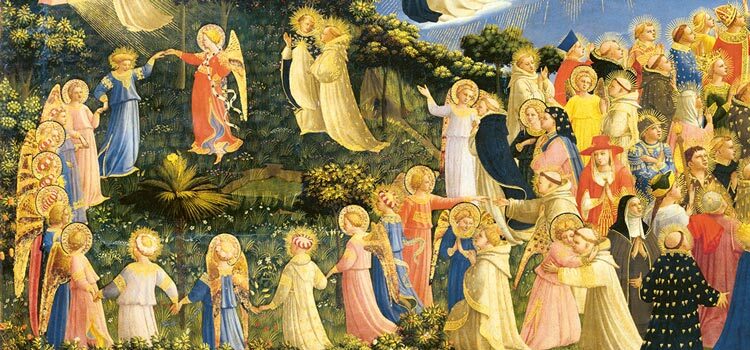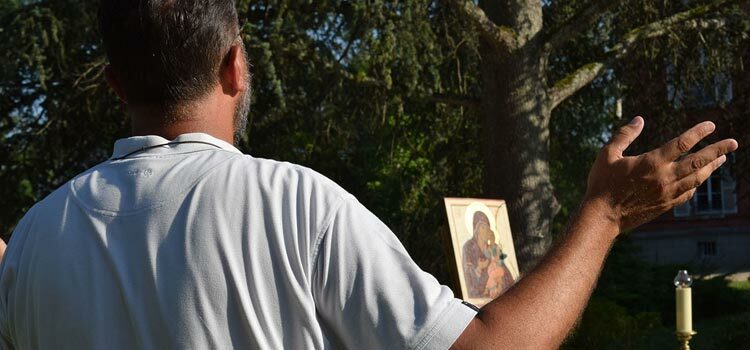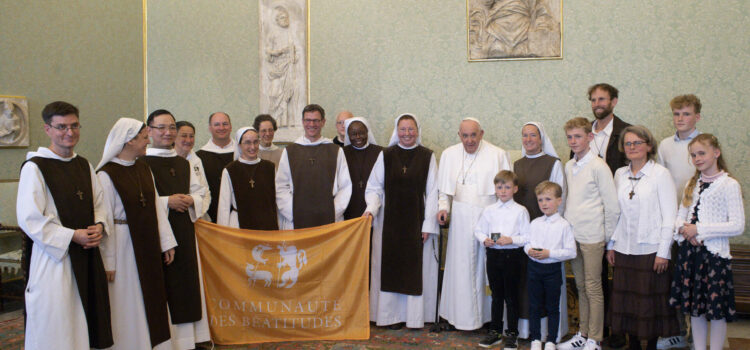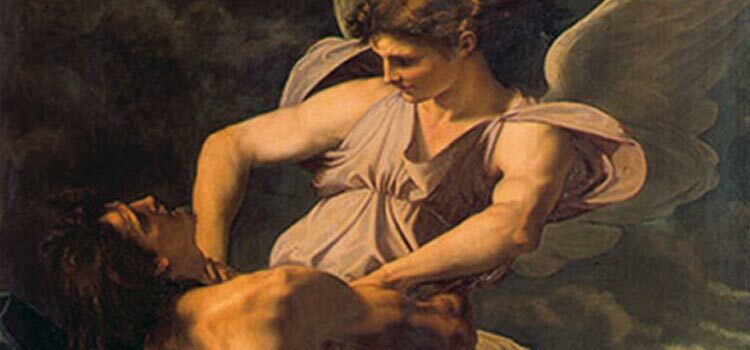Poor Martha, She is often shown as the « active » sister complaining about « a visionary and a dreamer ». The Lord praises her sister’s behaviour : « Mary has chosen the best portion, it will not be taken away from her » (Luke 10,42). Nevertheless, it is really Martha whom we feel closest to for, it is true, we are often caught up in action because it is Jesus himself we wish to serve. But is union with God at all possible when we are in full activity?
Goodness in action
Action is a good thing. God himself acts from the beginning. During six days he creates the world and marvels about it, because his work is good. The shabbat is a reminder of this divine activity which goes on, even during the day of rest : « My father is always at work and I, also, am at work. » « (Jn 5,17).
When God creates man and woman, he commands them to till the garden – tiredness and sweat will come only after the fall – « The Lord God took the man and put him in the garden of Eden to till it and take care of it. » (Gen 2,15).
Thus, we cannot oppose action and contemplation, as if we had to suffer under one, while the other would be perfect.
A complex question
Nevertheless, human action is a complex question. Philosophers have reflected a lot on it since Antiquity.
Aristotle speaks about it already in the «The Nicomachean Ethics » in the IV century before J.C. His vision will be adopted by the Christian theologians of the Middle Ages. Many have tried to understand why we need to create, to build, to make… a fundamental question wich seems to concern our very being itself.
The classical authors evoke three dimensions of action: to make concerns the material dimension, to act concerns the ethical or moral dimension, and to contemplate is purely interior. St JeanPaul II, in his book « Person and action » gave this definition of the human action : « Action unveils the person and we look at the person through his/her action. » It is an excellent summary of the question. Action has, in fact, an objective dimension through which we are able to create objects, to transform the world. But it has also a subjective dimension through which what we do, ad extra, changes us ad intra.
In fact, the inner dimension of action is very important. In all our deeds, we long for an integration of our whole being, so that we can really do what we wish to do the way we would like to do it. Alas, it is not always what happens : « For I do not do the good I want but the evil I do not want is what I do ». (Rm.7,19). So, in the heart of our action, we are living an inner battle.
But, if the Lord is present in this battle, and if union with God is the spinal column supporting our life, this changes everything… In so far as we live united in all the dimensions of our being – and that is the work of the Spirit and the fruit of ceaseless conversion – our actions receive the impulse which makes them really performing and good.
Two Benchmarks
There are two benchmarks to check this unification of our actions:
First : what gets us starting
In his book « Person and action » St Jean-Paul II writes :« Every action contains in itself a certain orientation of intention, moves towards specific objects or groups of objects, heads further than the person. » Where is our action heading to when we decide to undertake it ? What is our intention ? If we obey the inspirations of the Holy Spirit and let him guide us, then our activity will be an extension and a way of union with God. So it is important to be able to scrutinize soundly the motions of our heart. As Father Jacques writes in « At the school of the Holy Spirit » (part 2, § 9 « scrutinizing the motion of our heart ») :
« Where do those inspirations of grace spring from? Not from our imagination, nor from our head, but from the depth of our heart. In order to identify them, we must be attentive to what happens in our heart, to the motions we can detect, and know how to discern when these motions come from our nature, are the work of the devil or are inspired by the Holy Spirit ».
This applies to all our activities, even the daily ones, such as those of work or a simple service.
The second benchmark is to re-examine our activity, a kind of examination of conscience of what we do and how we do it. It is good to look at it, from the beginning to its end with an attitude of discernment as we go along with some choices we have to make.
Charity must always be the ultimate test of our action, beyond any effectiveness, or beyond other purely human values, since “in the evening of life we will be judged on love” (Saint John of the Cross). It is the greatest virtue that will never pass, as St Paul assures us (cf. 1 Cor 13:13).
The Celestial Action
Action challenges us always, in one way or another. Sometimes we have to face our limits, meeting difficulties or failures. We also meet sucess, giving us a completely legitimate joy and pride. In any case, we have the opportunity to give everything up to God, in trust and surrender, or in acknowledgment and thanksgiving :
« And whatever you do, in word or deed, do everything in the name of the Lord Jesus, giving thanks to God the Father, through Him » (Col. 3,17)
In our activity, we are called to transform the world. No excuse to refuse this impulse that is so characteristic of human nature ! But we shall only be able to do this accurately if we keep attached to Christ who has become the keystone of creation and gives meaning to everything we do.
The Quatation
« On the surface of our life, occurrences follow one another, as waves which do not change the depth of the sea or the meaning of our life which must always be a way to God. » Bx Fr. Luc Dochier
To go Further…Just for today:
Livres :
|
Find the previous articles in our “Life of prayer” series.
(publication edited by brothers and sisters of the Community of the Beatitudes – © rights reserved).






